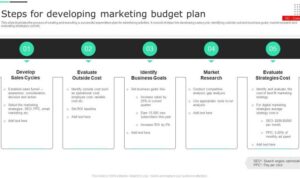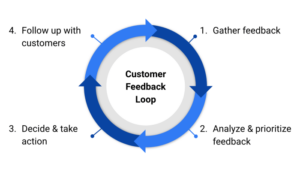Looking to up your freelancing game? Dive into the world of Freelancing Tips and Tricks and unlock the secrets to success in the gig economy jungle.
Learn how to navigate the freelancing landscape with finesse and achieve your goals like a pro.
Introduction to Freelancing Tips and Tricks
Freelancing in the gig economy refers to working independently, usually on a project basis, for multiple clients rather than being employed full-time by a single company.
Understanding freelancing tips and tricks is crucial for success in this competitive field. These insights can help freelancers navigate challenges, stand out in a crowded marketplace, and build a sustainable career.
Benefits of Learning Freelancing Tricks
- Enhanced efficiency in managing projects and clients.
- Increased productivity by optimizing workflow and time management.
- Improved communication skills to maintain client relationships.
- Ability to adapt to changing market trends and demands.
- Opportunity to increase earnings through strategic pricing and negotiation.
Setting Up a Freelancing Business
To establish a successful freelancing business, you need to make key decisions regarding your niche, profile, and rates.
Choosing a Niche for Freelancing
When selecting a niche for your freelancing business, consider your interests, skills, and market demand. Here are some tips:
- Identify your strengths and passions to determine what services you can offer.
- Research the market to understand which niches are in demand and have less competition.
- Choose a niche that aligns with your expertise and has the potential for growth.
Creating a Professional Profile
Crafting a professional profile is crucial for attracting clients and showcasing your skills. Follow these strategies:
- Highlight your experience, skills, and accomplishments in a clear and concise manner.
- Use a professional headshot and write a compelling bio that reflects your expertise.
- Showcase your portfolio with examples of your best work to demonstrate your capabilities.
Setting Competitive Rates
Determining your rates is essential to remain competitive in the freelancing market. Consider these strategies:
- Research industry standards and compare rates of freelancers with similar experience and skills.
- Calculate your expenses, desired income, and the value you bring to clients when setting your rates.
- Offer pricing packages or discounts to attract new clients and retain existing ones.
Finding Freelancing Opportunities: Freelancing Tips And Tricks

Finding freelancing opportunities is crucial for building a successful freelance career. Here are some tips on how to discover new gigs and projects.
Different Platforms for Finding Freelancing Gigs
- Freelancing Websites: Platforms like Upwork, Freelancer, and Fiverr are popular for finding freelancing gigs in various industries.
- Social Media: Utilize platforms like LinkedIn, Twitter, and Facebook to network with potential clients and showcase your expertise.
- Online Job Boards: Websites like Indeed and Glassdoor often have freelance opportunities posted by companies looking for skilled individuals.
Importance of Networking in Freelancing
Networking plays a vital role in freelancing as it helps you connect with potential clients, collaborators, and industry professionals. Building a strong network can lead to valuable opportunities and referrals.
Tips on How to Pitch for Projects Effectively
- Research the Client: Understand the client’s needs, preferences, and industry before crafting your pitch.
- Showcase Your Expertise: Highlight your skills, experience, and past projects that demonstrate your capabilities.
- Customize Your Pitch: Tailor your pitch to each client and project to show that you’ve done your homework and are genuinely interested in working with them.
- Be Clear and Concise: Keep your pitch brief, focused, and easy to understand to capture the client’s attention quickly.
- Follow Up: Don’t forget to follow up on your pitch politely if you haven’t heard back after a few days. Persistence can sometimes lead to opportunities.
Managing Finances as a Freelancer
As a freelancer, managing your finances is essential for long-term success and stability. Here are some tips to help you navigate the financial aspect of freelancing:
Budgeting and Saving Tips
Setting a budget and sticking to it can help you track your income and expenses effectively. Consider creating different categories for your spending, such as business expenses, taxes, savings, and personal expenses. Make sure to prioritize saving a portion of your income for emergencies or future investments.
- Avoid unnecessary expenses and prioritize essential purchases.
- Consider using budgeting tools or apps to help you manage your finances more efficiently.
- Regularly review and adjust your budget based on your income and expenses.
Strategies for Setting Aside Taxes
Freelancers are responsible for handling their taxes, so it’s crucial to set aside a portion of your income for tax payments. Here are some strategies to help you manage your tax obligations:
- Calculate your estimated taxes based on your income and tax bracket.
- Set up a separate bank account for tax savings to avoid spending that money unintentionally.
- Consider consulting with a tax professional to ensure you’re meeting all your tax obligations.
Managing Irregular Income Streams
Freelancers often experience irregular income streams, which can make financial planning challenging. Here are some tips to help you manage fluctuating income:
- Create a buffer fund to cover expenses during slow periods or unexpected emergencies.
- Diversify your client base to reduce reliance on a single source of income.
- Track your income and expenses meticulously to identify trends and plan for fluctuations.
Improving Productivity and Time Management
In the world of freelancing, managing your time effectively is crucial to getting work done efficiently and meeting deadlines. It’s important to find a balance between work and personal life to avoid burnout and stay motivated. Here are some tips and strategies to help you improve your productivity and time management skills.
Tools and Techniques for Managing Time Effectively
- Use time tracking apps or tools to monitor how you spend your time and identify areas where you can improve efficiency.
- Create a daily or weekly schedule to prioritize tasks and allocate time for each project or assignment.
- Break down large projects into smaller tasks and set deadlines for each to avoid feeling overwhelmed.
- Utilize project management software to collaborate with clients, track progress, and stay organized.
Tips for Avoiding Burnout and Maintaining Work-Life Balance
- Set boundaries between work and personal life by establishing specific work hours and sticking to them.
- Take regular breaks throughout the day to rest and recharge, avoiding working long hours without breaks.
- Engage in activities outside of work that you enjoy, such as hobbies or exercise, to reduce stress and prevent burnout.
- Learn to say no to projects or tasks that will overload your schedule and impact your well-being.
Strategies for Staying Focused and Motivated While Freelancing, Freelancing Tips and Tricks
- Set clear goals and objectives for each project to stay focused and motivated to achieve them.
- Create a productive workspace free from distractions to help you concentrate on your work.
- Reward yourself for completing tasks or reaching milestones to stay motivated and maintain a positive mindset.
- Stay connected with other freelancers or professionals in your field for support, advice, and motivation.
Enhancing Freelancing Skills
Continuous learning and upskilling are vital for freelancers to stay competitive in the ever-evolving market. By improving their skills, freelancers can offer more value to clients and expand their opportunities for work.
Resources for Improving Skills
- Online courses and tutorials on platforms like Udemy, Coursera, and Skillshare.
- Industry-specific workshops, webinars, and conferences.
- Networking with other freelancers and professionals in the field.
- Reading books, blogs, and articles related to freelancing and relevant skills.
Tips for Diversifying Skill Sets
- Identify transferable skills that can be applied to different projects or industries.
- Experiment with new tools and technologies to broaden your skill set.
- Seek feedback from clients and peers to understand areas for improvement.
- Collaborate with other freelancers on projects to learn new skills and techniques.
Dealing with Clients and Feedback

Effective communication with clients is key to building strong relationships and ensuring successful freelance projects. It is important to establish clear expectations, provide regular updates, and be responsive to client inquiries and feedback. Here are some strategies for effective client communication:
Strategies for Effective Communication
- Set clear expectations from the beginning of the project to avoid misunderstandings.
- Communicate regularly with clients to provide updates on the progress of the project.
- Be responsive to client inquiries and address any concerns or questions promptly.
- Use professional and courteous language in all communications with clients.
Tips for Handling Feedback Constructively
- Listen actively to client feedback and take it as an opportunity for improvement.
- Acknowledge the feedback provided by the client and show willingness to make necessary adjustments.
- Ask for specific examples or clarification if the feedback is unclear to ensure you address the client’s concerns effectively.
- Use feedback as a learning opportunity to enhance your skills and deliver better results in future projects.
Building Long-Term Relationships with Clients
- Deliver high-quality work consistently to build trust and credibility with clients.
- Go above and beyond to exceed client expectations and provide exceptional service.
- Stay in touch with clients even after the project is completed to foster long-term relationships.
- Show appreciation for their business and loyalty by sending thank you notes or small tokens of appreciation.





